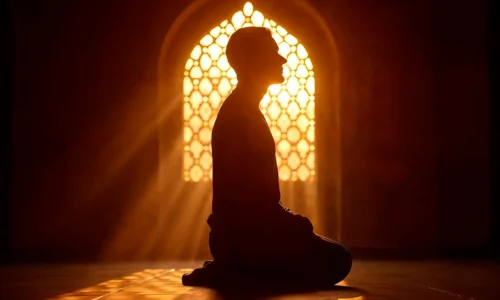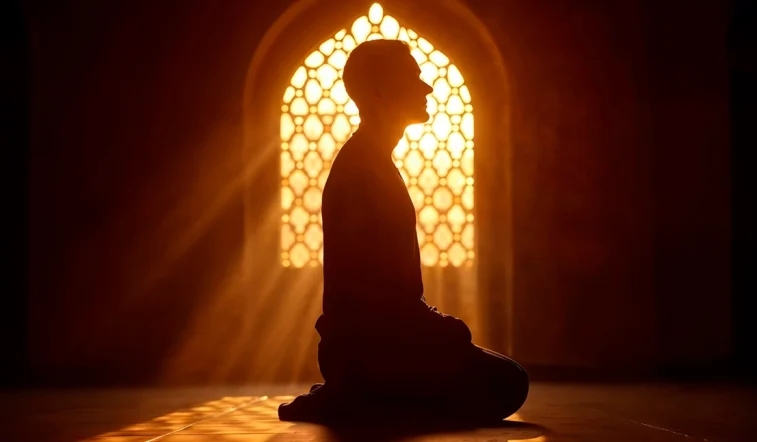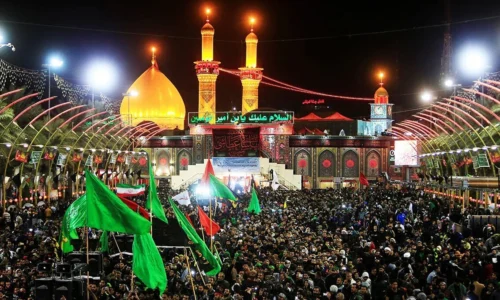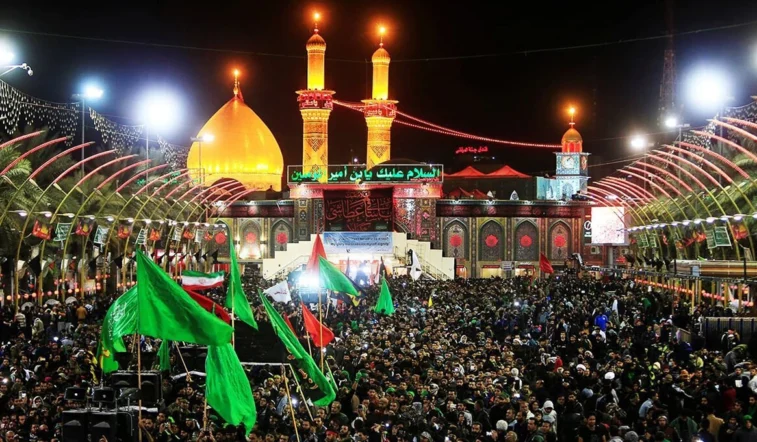Whispering “Ya Mahdi” When the World Falls Apart
There are moments in life when hardship wraps around us like a storm — when no voice answers our pain, when no door opens, when our hearts feel crushed by grief, fear, or uncertainty. In such times, even words fail.
But there is one name, one plea, one light that can still rise from the depths of our being:
“Ya Sahib az-Zaman… Ya Mahdi… Help me.”
Calling on Imam al-Mahdi (AS) — the 12th Imam, the hidden savior of humanity — is not just a tradition or a ritual. It is a lifeline. A deeply spiritual act of faith, surrender, and hope. It connects us to the mercy of Allah through the most compassionate of His servants. This article explores why calling on Imam Mahdi during hardship has power, how it transforms the soul, and what it truly means to whisper his name when the night is darkest.

1. He Is Appointed By God to Help You
Imam al-Mahdi is not a mythical figure. He is a real, living guide — appointed by Allah to preserve the light of divine guidance in every age. Though hidden from public view, he remains aware of the suffering of people — especially the believers.
The Qur’an says:
“And there is no community but that a warner has passed within it.”
~Qur’an – 35:24
Imam Mahdi is the final Proof of God on Earth. And the hadiths affirm that:
“The Imam is like the sun behind the clouds — though hidden, it gives light.”
When you call on him during hardship, you are calling upon Allah’s chosen guide, whose prayers, compassion, and intercession reach those who seek him sincerely.
2. Saying His Name Connects You to Hope
Sometimes, all you need is a reminder that you are not alone.
Whispering “Ya Mahdi” in times of despair is not about miracles falling from the sky instantly. It’s about awakening a part of your heart that had gone silent. It’s about saying:
“I still believe. I still wait. I still love.”
That moment of remembrance connects you to a chain of believers throughout time who endured hunger, grief, loss, and war — and yet held on by saying:
“Our Imam is still alive. Our Imam still prays for us. He is our hope.”
3. Many Have Been Helped By His Name
Throughout Islamic history, both scholars and ordinary people have testified to being helped after calling out to the Imam:
- The traveler lost in the mountains who called “Ya Mahdi!” and was guided to safety
- The mother whose child was sick and found strength through her tearful du‘a
- The oppressed who, while in chains, called upon the Imam and felt a strange inner peace
While not every hardship disappears instantly, many find that the burden feels lighter, the path becomes clearer, and the heart begins to heal after calling his name with sincerity.
4. Calling Him Is a Form of Du‘a
The Ahlulbayt taught us that calling on the Imam is a legitimate form of prayer. It’s not worship of him — it’s seeking help through him, because he is the servant of Allah and the representative of divine mercy.
When you say:
“O my Imam, O son of Fatima, help me…”
You are not asking him to do what only God can. You are asking him to:
- Pray for you
- Be your witness before God
- Intercede for your healing or relief
- Guide you in spirit, even if you don’t see it
This is exactly why we recite Du‘a al-Faraj, where we say:
“O Allah, be, for Your representative, the Hujjat ibn al-Hasan… a guardian and a protector…”
It is a prayer of hope — not only for his return, but for his nearness in our personal suffering.
5. His Name Heals the Wounded Soul
Even if your circumstances don’t change immediately, something within you does change when you sincerely call his name.
- The fear begins to settle
- The anger softens
- The confusion clears slightly
- The tears fall with meaning
This is not imagination — it is the mercy of God responding to your call, through the presence of His proof.
You may feel warmth, or calmness, or simply the courage to keep going. That’s his touch on your heart.
6. He Hears the Brokenhearted
You don’t need eloquent words. Just sincerity.
Whisper these words when you feel alone:
“O my Imam, I’m tired. Please don’t leave me.”
Say them in the quiet night:
“Ya Mahdi, I need guidance. I need light.”
Or shout it through tears if you must:
“Ya Sahib az-Zaman! Save me from drowning!”
He hears you. Even if you never see him, even if no one else believes you — he does.
Final Reflection: When You Call, You Are Not Alone
The world may be full of injustice. Life may feel unfair. But as long as you can say:
“Ya Mahdi…”
Then you are not lost. You are connected to the Imam who was born to bring justice, mercy, and truth.
Every time you call his name in hardship, you are:
- Strengthening your soul
- Tearing away despair
- Joining the prayer of every believer who waits for him
- Walking one step closer to his return
And when he finally reappears, he will recognize your voice — the one who never stopped calling him when times were hardest.







